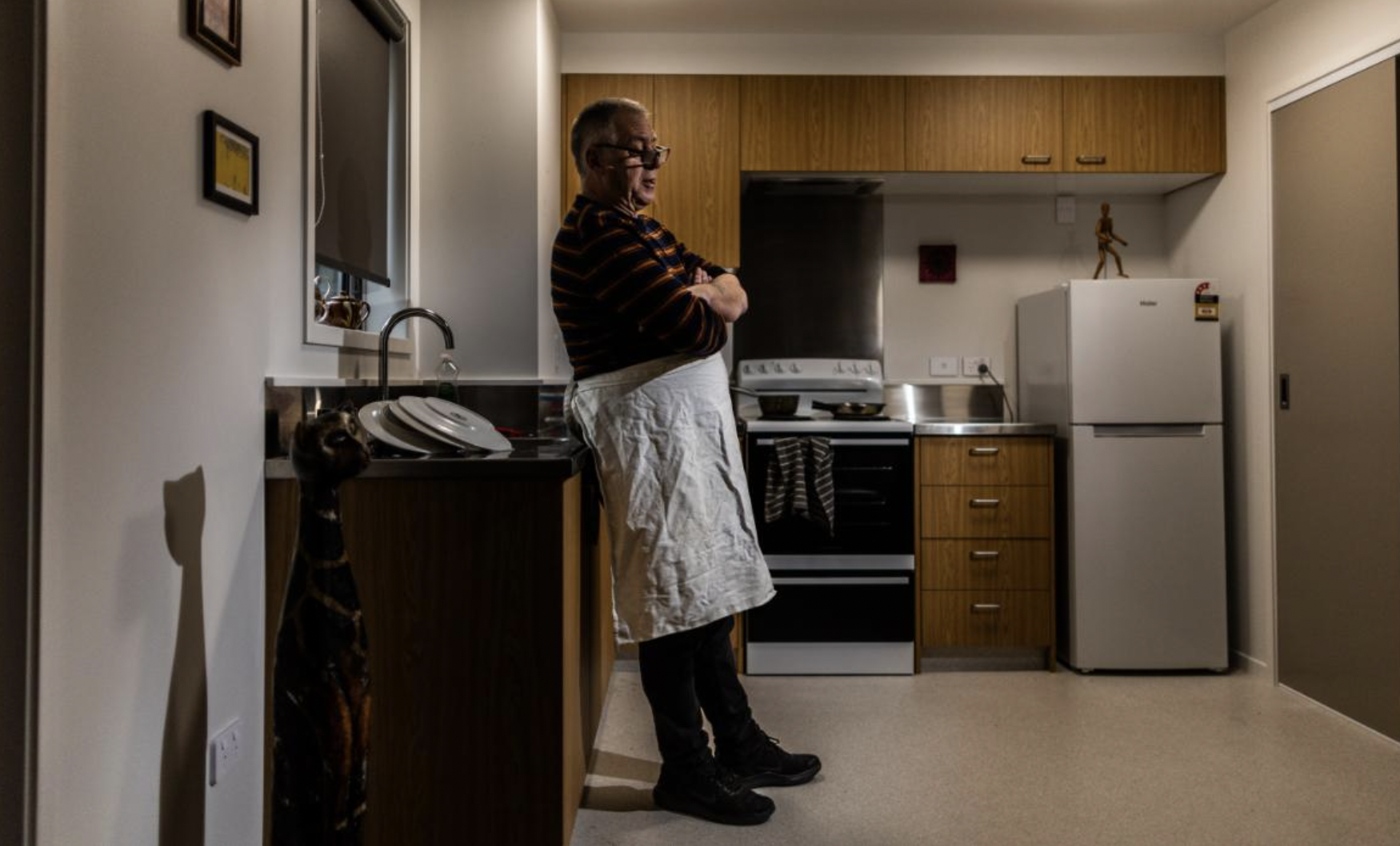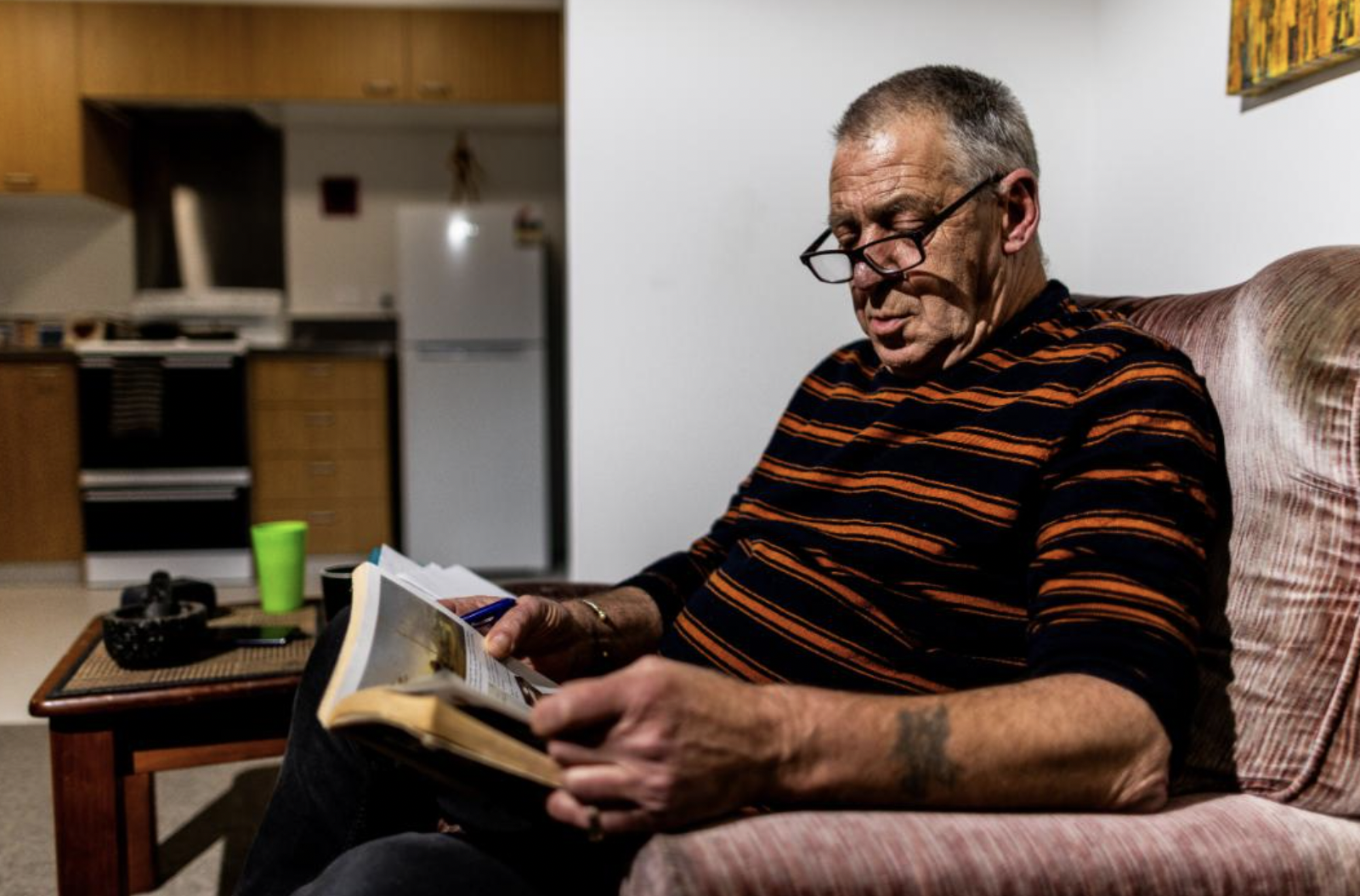
David’s story
David Paske soon realised he was not the only person on the peninsula living in a car.
He would drive around Wellington’s north coast and recognise the same run-down jalopies, parked in exactly the same spots. Often, the exteriors were sea-spray faded, conspicuous beside clean holiday vans. Unlikely to be roadworthy, let alone fit for habitation.
In those cars, he saw the same sad-looking guys; roughly his age, haggard, unkempt, afraid, struggling to make a home.
“I would try to approach them, but they didn’t want to know you. They thought you were trying to interfere, or you wanted to rob them.”
The crisis is much bigger than is implied by a smattering of rust buckets parked around Scorching Bay. It is estimated more than 100,000 people nationwide live in severe housing deprivation, effectively on the doorstep of homelessness.
About 3600 among that count are people considered to be living without shelter, some of them in cars, or on the streets.
There are not enough state homes, and almost 30,000 people on the wait list for those that do exist.
Paske wasn’t officially waiting. At least not yet.
At 69, the retired chef is a meandering conversationalist, with a gruff, smoker’s voice. It is hard to imagine him keeping to himself for long.
Minutes from where he parked, there were recent memories; the site of his last substantial restaurant job, when he was head chef at Scorch-O-Rama.
Instead, he did what he had in kitchens for nearly five decades: improvise.
Inside the 1996 Nissan Cefiro, he cooked rudimentary meals on a small camping stove: beans, stir fries, noodles.
The ocean was his fridge. He buried perishables – cured meats, butter, and milk – in a tightly-sealed container at the water’s edge. To prevent the makeshift icebox floating away, he would fortify the hole overnight with driftwood.
Not that he was always parked up. On Sundays, he visited his children, in Kilbirnie, for a family meal, which he often cooked himself.
Nor was he always homeless. For several months, he lived at Loafers Lodge – the central city hostel that would later be the scene of a fatal fire. He bounced between unaffordable private rentals. In between, he gravitated back to Scorching Bay.
Tourists ignored him; daily joggers avoided eye contact. From time to time, the police would rap on his window, turning a blind eye, inevitably, to his vehicle’s expired registration.
Eventually, the car needed repairs; a crack in the windscreen was the death knell. The cost to re-register the vehicle – and make the car roadworthy – would be more than it was worth.
He scrapped it, moved into another flop house late last year – which the owner converted into emergency housing in the weeks before Christmas. As part of that transfer, almost as if by accident, he ended up on the wait list. He didn’t think much of the change, until he got a call a few months later.
The person on the the line asked if he would like to view a one-bedroom home in Kilbirnie.
“They told me it was something called ‘community housing’.”
David lives on the ground floor, directly beneath the two families.
His home includes a modest kitchen, equipped with an actual stove. It’s about the same size as the kitchen in his very first restaurant, opened in 1975.
He put $800 towards that fit-out; a sizeable portion of which went towards towards creating a partition between the kitchen and an intimate dining area, seating 16 people at full bustle.
Now, Paske is looking forward to cooking for other people again. Even if just for his own children. Wet meals, he calls those dishes. Pastas, curries, along with other meals easily frozen.
But he doesn’t entirely rule out one last adventure in a restaurant of his own. A friend scouts for locations on his behalf, ready to pounce on a convenient site, one with the correct plumbing already in place. In a few years, he’ll be past it, he reckons – but not yet.
It is perhaps the most precious thing given to him by a stable home: possibility. Nowadays, he hears the kids playing upstairs and snippets of conversation drift in from outside. Maybe he’ll even get to know the neighbours this time.
“I had lots of money, I had none. I had lots of money again, I had none. I had lots of money again, and then none. And then it gets too hard to recover.”



